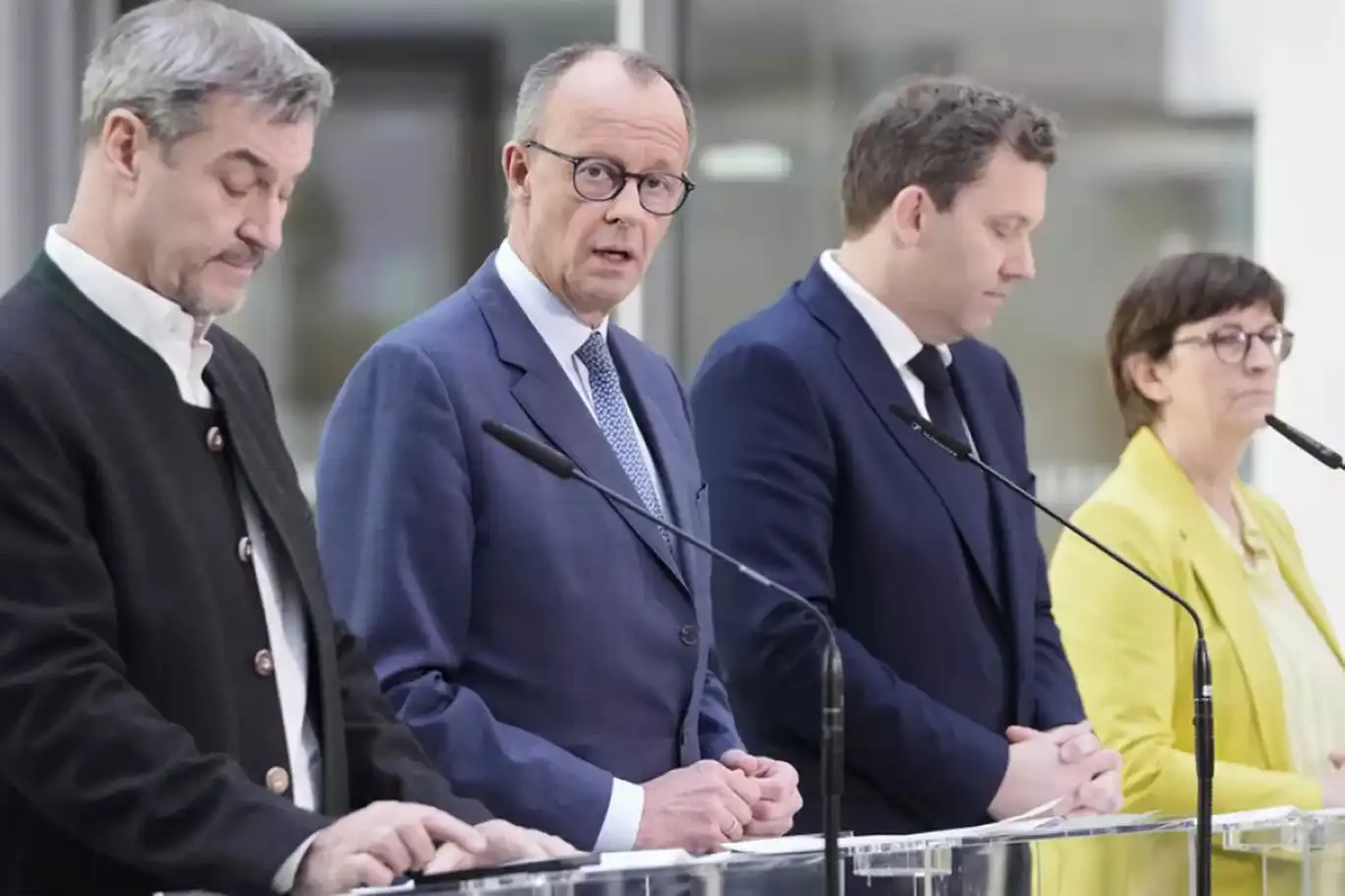CDU and SPD agree to form coalition government in Germany


Germany’s conservative Christian Democratic Union (CDU), alongside its Bavarian sister party, the Christian Social Union (CSU), and the centre-left Social Democratic Party (SPD), have reached an agreement in principle to form a coalition government, CDU leader Friedrich Merz announced on Saturday.
Following the February 23 elections, the CDU/CSU emerged as the largest parliamentary bloc but fell short of an outright majority, necessitating coalition talks. After weeks of exploratory discussions, Merz and SPD co-leader Lars Klingbeil confirmed that formal coalition negotiations will now commence, with the goal of finalizing a deal before next week. Merz, poised to become Germany’s next chancellor, has set an ambitious target of completing the coalition agreement by Easter.
Germany’s coalition-building process typically unfolds in two stages: exploratory talks followed by formal negotiations. The CDU/CSU and SPD are racing to finalize their agreement to push forward critical legislative measures, including loosening borrowing limits to stimulate economic growth and increasing military spending.
Merz has emphasized the urgency of strengthening Europe’s defenses, citing a more hostile Russia and uncertainty over U.S. support under President Donald Trump. “Europe must take its security into its own hands,” Merz stated, underscoring the geopolitical challenges facing the incoming government.
Despite a contentious election campaign, the CDU/CSU and SPD have found common ground on several key issues, including migration policies, welfare payments, and Germany’s military support for Ukraine.
One significant point of discussion has been the potential supply of Taurus long-range missiles to Ukraine. Outgoing SPD Chancellor Olaf Scholz had opposed the move, while Merz has expressed conditional support, highlighting the need for careful consideration of escalation risks.
A cornerstone of the coalition agreement is a stricter approach to irregular immigration, a policy aimed at reclaiming voters from the far-right Alternative for Germany (AfD), which achieved a record 20% of the vote in the recent election. The coalition plans to implement measures to refuse entry to all undocumented migrants at Germany’s borders, including those seeking asylum. Merz has repeatedly stressed the need to curb illegal entries, framing it as a priority for restoring public trust in the government’s handling of migration.
The SPD, for its part, has secured key commitments on social policies. Among the agreements is an increase in the minimum wage to €15 per hour, as well as guarantees for stable pension payments. SPD co-leader Lars Klingbeil described the agreement as “an important first step” toward addressing Germany’s economic and geopolitical challenges, emphasizing the shared objective of “steering Germany back on track.”
With formal coalition talks now underway, Germany is moving closer to forming a new government at a critical juncture. The incoming coalition will face significant challenges, from revitalizing Europe’s largest economy to navigating complex international relations amid heightened global tensions.
Merz echoed the gravity of the moment, stating, “Both parties recognize the immense responsibility ahead, particularly regarding Europe’s security and economic stability.”
As the CDU/CSU and SPD work to finalize their coalition agreement, the world watches closely to see how Germany’s new government will shape the future of the nation—and the European Union. (ILKHA)
LEGAL WARNING: All rights of the published news, photos and videos are reserved by İlke Haber Ajansı Basın Yayın San. Trade A.Ş. Under no circumstances can all or part of the news, photos and videos be used without a written contract or subscription.
Ukrainian President Volodymyr Zelensky arrived in Prague on Sunday for an official visit focused on strengthening the Czech Republic's military, diplomatic, and humanitarian assistance to Ukraine.
The Al-Qassam Brigades, the armed wing of the Palestinian resistance movement Hamas, has issued a powerful statement in praise of Yemen’s Ansar Allah forces after their daring missile strike on the Israeli entity’s Ben Gurion Airport in Tel Aviv.
A number of major international airlines, including Germany’s Lufthansa Group and Spain’s Air Europa, have suspended all flights to and from Tel Aviv following a ballistic missile attack launched from Yemen that targeted areas near the Israeli entity’s main international hub, Ben Gurion Airport.
The United Nations Relief and Works Agency for Palestine Refugees (UNRWA) has issued a grave warning about the catastrophic humanitarian situation in the Gaza Strip.